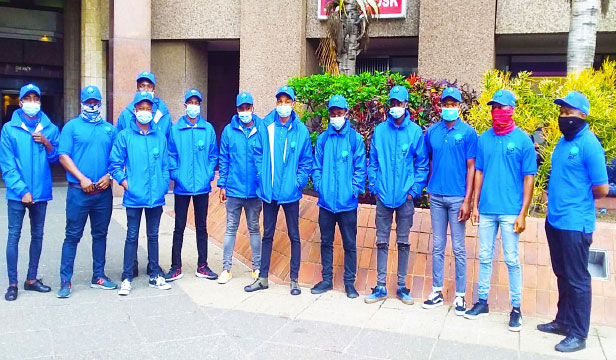The UIP Company
Always caring, always there !
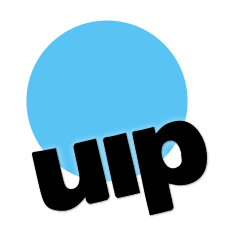
The UIP Company is a non-profit organization. Established primarily in geographically defined areas, it delivers supplementary public services which improve social, environmental and economic conditions. The Company’s success is underscored by the many milestones it has achieved since its inception in July 2000, and its ongoing efforts toward revitalizing the Inner City.
Our reason for being ...
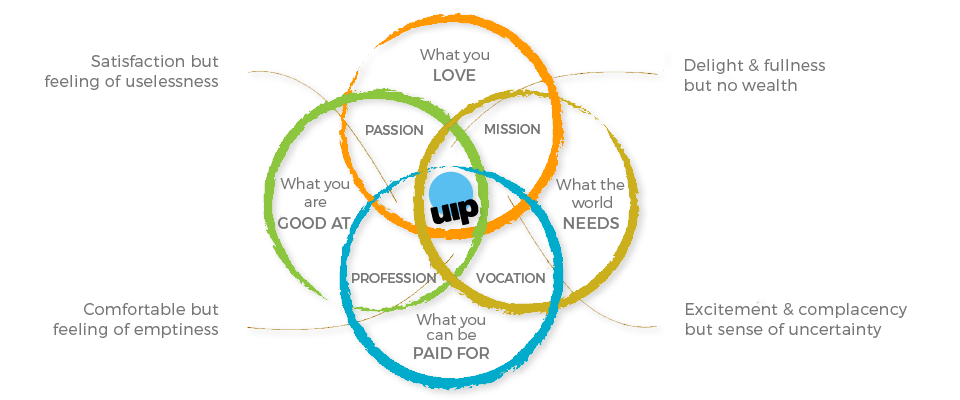
UIP Background
Over the past two decades, urban governance models have evolved both locally and internationally to address the increasing complexity of managing and maintaining inner-city environments. Rapid urbanisation, migration, infrastructure strain, and historical spatial inequalities have placed significant pressure on municipal resources. In South Africa, municipalities continue to balance legacy service backlogs with growing demands for economic development, environmental management, and public-space upkeep.
Urban Improvement Precincts (UIPs) emerged as collaborative public–private initiatives that support municipalities in enhancing defined geographic areas through structured urban management programmes. These initiatives focus on cleanliness, public-space maintenance, environmental monitoring, stakeholder coordination, and support for lawful and compliant service providers. Through cooperative partnerships with municipal authorities and local stakeholders, UIPs contribute to improving the functionality, accessibility, and sustainability of urban precincts within the framework of applicable legislation.
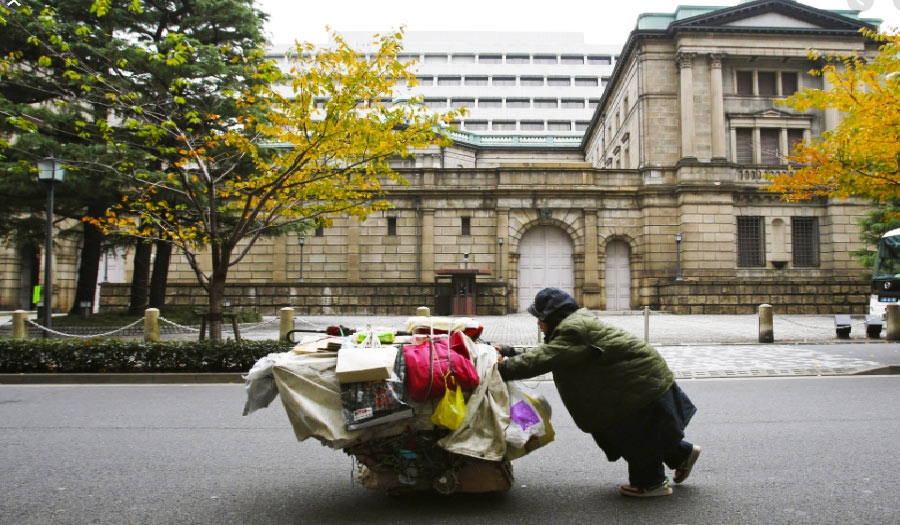
UIP Concept
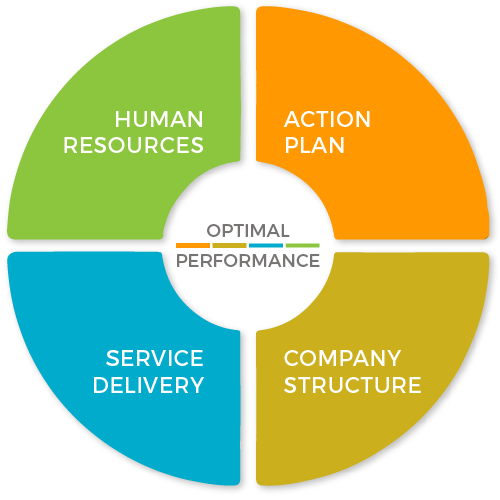
The term Urban Improvement Precinct (UIP) is well established within South Africa’s urban regeneration framework and reflects a structured, collaborative approach to managing defined geographic areas. The concept originated internationally in the 1960s, when property owners and businesses collectively funded enhancements to public environments such as pedestrian spaces, streetscapes, and shared infrastructure. In South Africa, UIPs operate within a legislative framework that enables property owners within a designated area to contribute toward agreed urban management initiatives that complement municipal service delivery.
Urban Improvement Precincts may be known by various names internationally, including Business Improvement Districts (BIDs) or City Improvement Districts (CIDs), and are applied across residential, commercial, industrial, and mixed-use areas. While each precinct has its own character and priorities, UIP initiatives typically focus on environmental management, public-space maintenance, stakeholder coordination, and supporting lawful and compliant service providers. Through structured public–private collaboration, UIPs aim to enhance the functionality, cleanliness, and economic sustainability of their designated areas within the bounds of applicable legislation.
Defining Characteristics
Urban Improvement Precincts (UIPs) are structured public–private initiatives established within a defined geographic area to coordinate supplementary urban management programmes that complement municipal service delivery. While funded through approved assessment mechanisms, UIPs operate within a legislative framework and remain subject to municipal oversight. They are typically administered by a non-profit company governed by a board of directors representing property owners and stakeholders within the designated area. The municipality continues to provide its standard baseline services, with UIP initiatives designed to support and enhance the overall functionality and management of the precinct.
The establishment of a UIP requires approval in terms of applicable legislation and the support of a prescribed majority of affected property owners within the defined area. Once ratified by the relevant municipal authority, the UIP operates in accordance with an approved business plan and budget. Property owners determine the nature and scope of the supplementary urban management initiatives appropriate for their precinct, which may vary depending on local priorities and needs. All activities are undertaken within the bounds of applicable law and in coordination with relevant public authorities and compliant service providers.
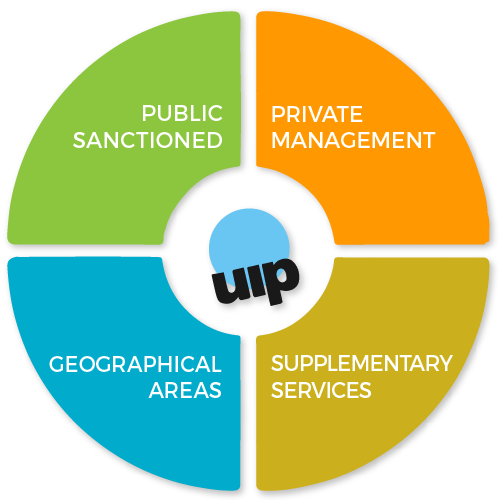
UIP Finances

Urban Improvement Precincts (UIPs) provide a structured funding mechanism that enables property owners within a designated area to collectively support agreed urban management initiatives. Funding is raised through an approved additional rate applied within the Special Rating Area in accordance with applicable municipal legislation. These funds are administered in terms of an approved business plan and budget, allowing for the implementation of supplementary urban enhancement initiatives such as environmental maintenance, streetscape improvements, greening, signage, and other precinct-level enhancements that complement municipal baseline services.
The additional rate is collected by the municipality as part of its normal rates and billing process and is transferred to the UIP in accordance with the approved framework. The establishment and continuation of a UIP requires compliance with prescribed legislative processes and majority support thresholds among affected property owners. This structured funding approach provides transparency, predictability, and accountability, enabling long-term planning and sustainable precinct management within the bounds of applicable law.
UIP Benefits
Urban Improvement Precincts (UIPs) provide property owners and businesses with a structured platform to collaborate in enhancing defined urban areas through coordinated supplementary urban management initiatives. These initiatives are designed to complement, not replace, municipal baseline services and may include environmental maintenance, streetscape management, stakeholder coordination, and support for compliant service providers. Through collective participation, UIPs contribute to improved cleanliness, orderliness, and overall functionality within their designated precincts.
In addition to environmental enhancements, UIPs can support local economic activity by facilitating employment opportunities and skills development within approved operational programmes. By operating within a clearly defined geographic area and an approved legislative framework, UIPs promote accountability, structured planning, and transparent management of additional-rate funding. All activities are undertaken in coordination with the municipality and relevant authorities to ensure alignment with applicable laws and approved service standards.
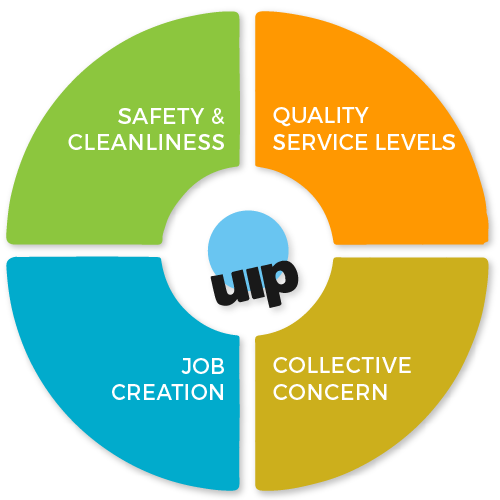
Urban Governance
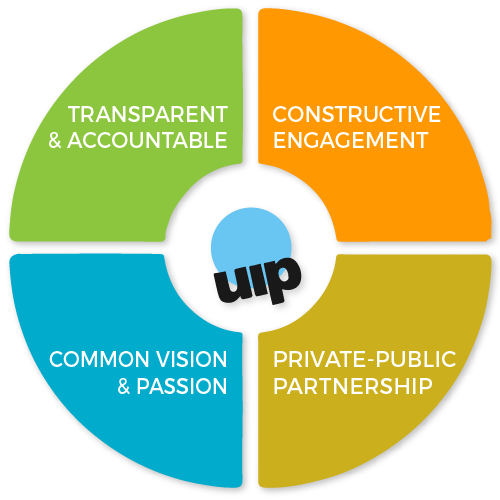
Urban Improvement Precincts (UIPs) provide a structured framework for collaboration between property owners, businesses, and municipal authorities within a defined geographic area. This model supports coordinated urban management initiatives that enhance the functionality and sustainability of the precinct while operating within the applicable legislative framework. Through structured engagement and transparent planning processes, UIPs facilitate cooperative partnerships that align stakeholder interests with approved municipal objectives.
The UIP Company is established as a non-profit company and operates in accordance with the Companies Act, 2008, and the applicable municipal rates policy governing Special Rating Areas. Its Memorandum of Incorporation defines the responsibilities of the Board of Directors and provides for accountability, transparency, and proper financial oversight. All funds are administered in accordance with the approved business plan and budget, ensuring that property owner contributions are applied solely for authorised precinct management purposes.
Changing Perceptions
Urban Improvement Precincts (UIPs) provide a structured mechanism through which property owners and businesses collaborate to enhance the management and attractiveness of defined inner-city areas. By coordinating supplementary urban management initiatives within an approved legislative framework, UIPs support revitalisation efforts and contribute to improved environmental standards, streetscape enhancements, stakeholder engagement, and precinct-level planning. These initiatives are designed to complement municipal baseline services and to support sustainable economic activity within the precinct.
Internationally, similar area-based management models reflect a growing emphasis on cooperative public–private collaboration in urban environments. Within South Africa, UIPs operate in concert with municipal authorities and in accordance with applicable legislation governing Special Rating Areas. The focus remains on coordinated precinct management, transparent governance, and structured implementation of approved programmes, ensuring alignment with municipal objectives and compliance with all relevant regulatory requirements.

Precinct Safety Coordination & Monitoring
Security-related services within the precinct are delivered by independently contracted private security providers that are duly registered and compliant with the Private Security Industry Regulation Authority (PSIRA). These service providers operate in accordance with applicable legislation and under clearly defined service level agreements.
UIPCO’s role is limited to coordination, oversight of contractual performance, and integration of service providers within the broader precinct management framework. All operational security functions, including personnel deployment and compliance obligations, remain the responsibility of the appointed and registered security service provider.
